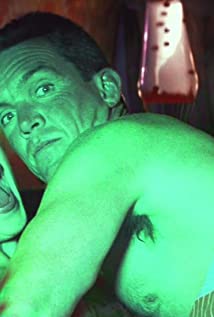
As per our current Database, Dominique Louis has been died on 2 November 1845 (1845-11-03) (aged 84)\nParis.
When Dominique Louis die, Dominique Louis was 84 years old.
| Popular As | Dominique Louis |
| Occupation | Art Department |
| Age | 84 years old |
| Zodiac Sign | Aries |
| Born | January 29, 1761 ( Burgundy, France, France) |
| Birthday | January 29 |
| Town/City | Burgundy, France, France |
| Nationality | France |
Dominique Louis’s zodiac sign is Aries. According to astrologers, the presence of Aries always marks the beginning of something energetic and turbulent. They are continuously looking for dynamic, speed and competition, always being the first in everything - from work to social gatherings. Thanks to its ruling planet Mars and the fact it belongs to the element of Fire (just like Leo and Sagittarius), Aries is one of the most active zodiac signs. It is in their nature to take action, sometimes before they think about it well.
Dominique Louis was born in the Year of the Snake. Those born under the Chinese Zodiac sign of the Snake are seductive, gregarious, introverted, generous, charming, good with money, analytical, insecure, jealous, slightly dangerous, smart, they rely on gut feelings, are hard-working and intelligent. Compatible with Rooster or Ox.
Louis Klein was born on 25 January 1761 in Blâmont (Meurthe), in the Lorraine region. He married 7 January 1783 to Marie-Agathe Pierron, with whom he had a son Edouard Marie Arsène (1784 – 1843). Edouard had two daughters, Arsène Louise Marie, born 1820, married Mathieu Prosper Morey; and Louise Françoise Clémence, born in Hebreville, 1825, married in Paris to Henri Tollier.
Initially, Klein served in the royal house guard for the King of France, holding the prestigious position as guard of the gate. He left military Service in 1787. After the French Revolution began in 1789, he rejoined the military and in 1792, he was listed as an infantry lieutenant in the Army of the North. His cavalry regiment participated in the Battle of Fleurus.
By 1795, Klein was a brigadier general in the Army of Sambre-et-Meuse, where he replaced Adjutant-General Michel Ney. Klein was appointed general of division in 1799 and crossed the Rhine at Kehl in Jean-Baptiste Jourdan's Army of the Danube. He commanded the right flank of the Advance Guard, under command of François Joseph Lefebvre. His command included the 4th and 5th Hussar Regiments, the 17th Dragoons, the 1st Chasseurs à cheval, a light horse regiment, two companies of horse artillery, two of foot artillery, and a company of sappers. At the Battle of Ostrach, Klein's cavalry helped to secure the village of Hosskirch, a strategically important forward post, prior to the general engagement. After the French losses at Ostrach and the subsequent Battle of Stockach, Jourdan ordered a general withdrawal to the Black Forest. The reserve cavalry and most of Klein's division crossed the mountains and quartered near Offenburg, where their horses could find better forage. Despite the organized withdrawal and the relatively secure positions on the western side of the Black Forest, the army was in shambles. Jourdan placed his chief of staff Jean Augustin Ernouf in provisional command and went to Paris to complain about the state of his army, its equipment and its provisions. Discipline in the ranks disintegrated. Most of the divisional generals left their posts, except for Pierre Marie Barthélemy Ferino, Joseph Souham, Dominique Vandamme and Klein. In May, Andre Massena received overall command of both the Army of the Danube and the Army of Helvetia; Klein's column joined Massena near Zurich.
In May 1799, Klein led a cavalry division of 2,010 prior to the Battle of Winterthur. A few days later, he commanded the cavalry reserve against the Archduke Charles and the Austrian army at the First Battle of Zurich. Charles' superior numbers and position forced the French to retreat from Zurich, taking up position on the western side of the Limmat River. In September, he again commanded the cavalry reserve, the VII. Division, of 3,696 on the left (west) bank of the Aar river. He was responsible for guarding the Frick valley (Fricktal). There, as the dispositions developed for the Second Battle of Zurich on 25 September, Klein remained under direct command of Massena. Klein prepared to support either the troops of Jean Thomas Guillaume Lorge or Édouard Adolphe Casimir Joseph Mortier, on the north or south flanks respectively, as required. The Austrian assault fell hardest on Mortier, who was driven back from the strategically placed Dietikon. Klein's reserve enabled the French to retake and hold the village. This convinced the Russian commander in Zurich, Alexander Korsakov, that he should draw his troops back to the city fortifications. Later, as Korsakoff relinquished these, the Russians executed a confused withdrawal to Constance. In the chaos, Honoré Théodore Maxime Gazan's division, supported by Klein's reserve, pressed the Coalition forces hard at the west end of Constance, by the bridge to the abbey at Petershausen. They nearly captured the Prince Condé and the Duke d'Enghien themselves. Although the French took many prisoners, including many of the Army of Condé, the French emigrant army, these prisoners were not massacred whole-sale, as had happened after earlier battles. Klein and Mortier issued instructions, which were supported by Massena, that the émigrés be assigned Russian names—they were, after all, under Russian pay and wearing the Russian cockade in their caps—and treated with dignity; they were eventually exchanged for French officers held prisoner by the Austrians and Russians.
Returning to France after the Peace of Lunéville in 1801, Klein remained inactive for several months. In 1802 he was recalled to military Service as Inspector of Cavalry. He was given command of the 1st Division of Dragoons and in 1804 was made a Grand Officer of the Legion d'honneur.
In 1805, Klein's division was part of the newly created VIII. Corps, under command of Édouard Mortier; the role of the Corps was to patrol and secure the northern shore of the Danube river, limiting the Austro-Russian activity. Napoleon incorrectly assumed that the Russians and the Austrians would make a stand near St. Pölten, North West of Vienna. Klein's entire regiment of dragoons patrolled the northern Danube shore, while the rest of his division, the last in the extended line of march, was more than a day behind Maxime Gazan's lead division. Klein's division did not take part in the Battle of Dürenstein, although his dragoons were with Mortier and Gazan immediately prior to the engagement.
Following the Prussian campaign, Napoleon appointed Klein as governor of the Imperial palace. In 1807, Klein was called to the Senate. In 1808, he was raised by letters of patent to a count of the empire and awarded the Grand Cordon of the Order of the Bavarian Lion. In 1812, he was placed in command of the recruitment and training of a cohort of the National Guard.
He remained in the Senate until April 1814, when he voted for Napoleon's abdication. In 1814, during the Bourbon Restoration, he was named a knight of the Order of Saint Louis. He did not support Napoleon's return in the Hundred Days. In the Second Restoration, Louis XVIII raised him to the French peerage.
In 1808, Klein divorced Pierron, with the Emperor's permission, and on 2 July of that year remarried to Caroline of Valangin-Arberg, daughter of the Countess of Arberg, a lady-in-waiting to the Empress Josephine de Beauharnais. In this marriage, he had a son, Eugene Joseph Napoleon, who was born in 1813 in Paris and died in 1872 . Louis Klein died 2 November 1845 in Paris.










